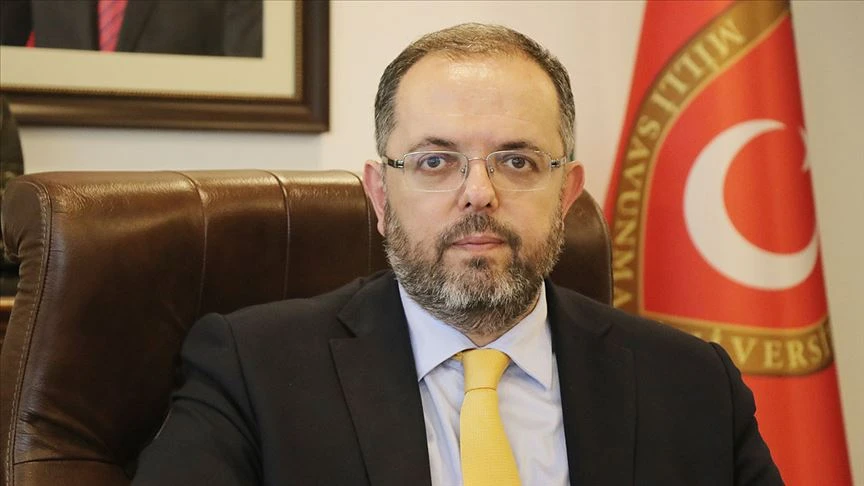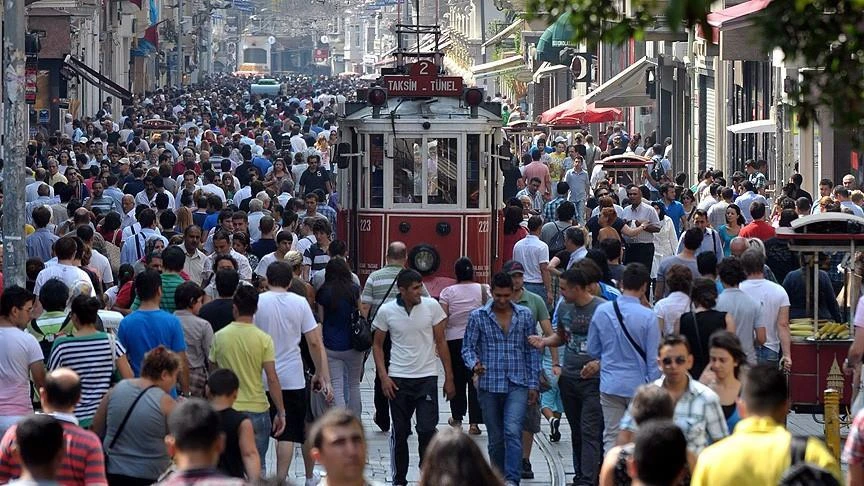Turkish professor suggests transferring Uyghur Turks from China to Türkiye
 A demonstrator in Istanbul protests China's treatment of Uyghurs on 2021. (AFP Photo)
A demonstrator in Istanbul protests China's treatment of Uyghurs on 2021. (AFP Photo)
Turkish National Defense University’s rector, Professor Erhan Afyoncu, highlighted the sharp decline in Türkiye’s population growth rate, describing it as one of the country’s biggest challenges.
Referring to recently published data from the Turkish Statistical Institute (TurkStat), Afyoncu stated, “In 2023, our population growth rate dropped to 1.1 per thousand. In 1990, it was 2.1. We fell from 2 to 1 per thousand. According to the latest TurkStat data, it has risen to 3.1 per thousand, but this is still not enough. This trend poses a threat greater than war.”
As a solution to the declining population growth, Afyoncu suggested that Türkiye should bring in Turkish communities from abroad who are struggling to sustain their existence.
We need to attract Turks from different parts of the world who no longer have the chance to maintain their presence. For example, Uyghur Turks from China. Türkiye must accept a certain number of Turks through migration.
Erhan Afyoncu
Afyoncu emphasized that Türkiye should take action on this issue, arguing that controlled and strategic migration policies could help address the population crisis.

Türkiye’s population reaches 85.7M, foreign residents in decline
Türkiye’s population reached 85.7 million in 2024, marking a modest increase of 292,567 people from the previous year, according to new data released by TurkStat. The figures reveal significant demographic shifts across urban centers, rural regions, and foreign resident populations.
Türkiye’s population shows a nearly equal gender distribution, with men comprising 50.02% (42.85 million) and women 49.98% (42.81 million) of the total population. The annual population growth rate rose significantly to 3.4 per thousand in 2024, up from 1.1 per thousand in 2023, indicating a reversal of recent slowdown trends.
Istanbul maintains its position as the country’s most populous city, home to 15.7 million residents—approximately 18.3% of Türkiye’s total population. The metropolitan hub saw an increase of 45,678 residents over the past year. Following Istanbul are Ankara with 5.86 million residents, Izmir with 4.49 million, Bursa with 3.24 million, and Antalya with 2.72 million inhabitants.

The stark contrast in population distribution is evident when comparing these urban centers with the country’s least populated provinces. Bayburt maintains its position at the bottom with 83,676 residents, followed by Tunceli (86,612) and Ardahan (91,354), highlighting the significant demographic disparities between regions.
The trend toward urbanization intensified in 2024, with 93.4% of the population now residing in city centers and district municipalities, up from 93% in 2023. According to the new spatial classification system implemented through the Spatial Address Registration System (MAKS), 67.2% of Türkiye’s population lives in densely populated urban areas, while 15.5% inhabits moderately dense urban regions, and 17.2% resides in rural areas.



